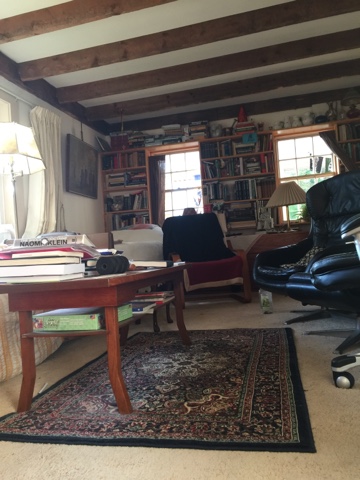And there’s only one difficulty in life: We don’t want to be here. And yet here we are.
Therefore there’s only one problem we have in life: We are a reluctant community, a reluctant community try to figure out what to do, how to be, here.
Tea and Rice, by Zen Master Dogen
When you ride in a boat and watch the shore, you might assume that the shore is moving. But when you keep your eyes closely on the boat, you can see that the boat moves. Similarly, if you examine myriad things with a confused body and mind, you might suppose that your mind and essence are permanent. When you practice intimately and return to where you are, it will be clear that nothing at all has unchanging self.
--To study the way of enlightenment is to study the self. To study the self is to forget the self. To forget the self is to be actualized by myriad things. When actualized by myriad things, your body and mind as well as the bodies and minds of others drop away. No trace of enlightenment remains, and this no-trace continues endlessly.
–If you attain unsurpassable, complete enlightenment, all sentient beings also attain it. The reason is that all sentient beings are aspects of enlightenment.
–Great enlightenment right at this moment is not self, not other.
–If you speak of “achieving enlightenment,” you may think that you don’t usually have enlightenment. If you say, “Enlightenment comes,” you may wonder where it comes from. If you say, “I have become enlightened,” you may suppose that enlightenment has a beginning.
–Great enlightenment is the tea and rice of daily activity.
♦From The Essential Dogen: Writings of the Great Zen Master, edited by Kazuaki Tanahashi and Peter Levitt © 2013. Reprinted with permission of Shambhala Publications.
http://tricycle.org/magazine/tea-and-rice-2/?utm_source=Tricycle&utm_campaign=8947c1f89e-Daily_Dharma_June_11_201606_11_2016&utm_medium=email&utm_term=0_1641abe55e-8947c1f89e-307306085Here we are.
We are here.
Why is it we pretend not to know who we are?





